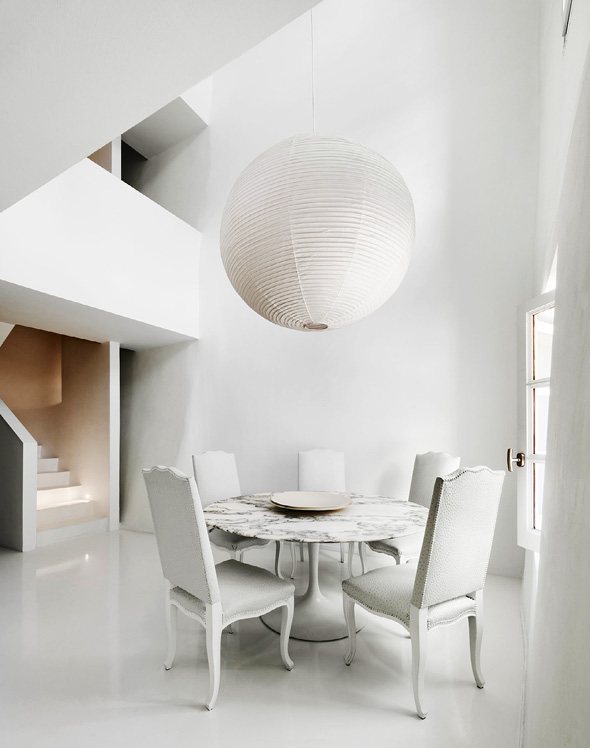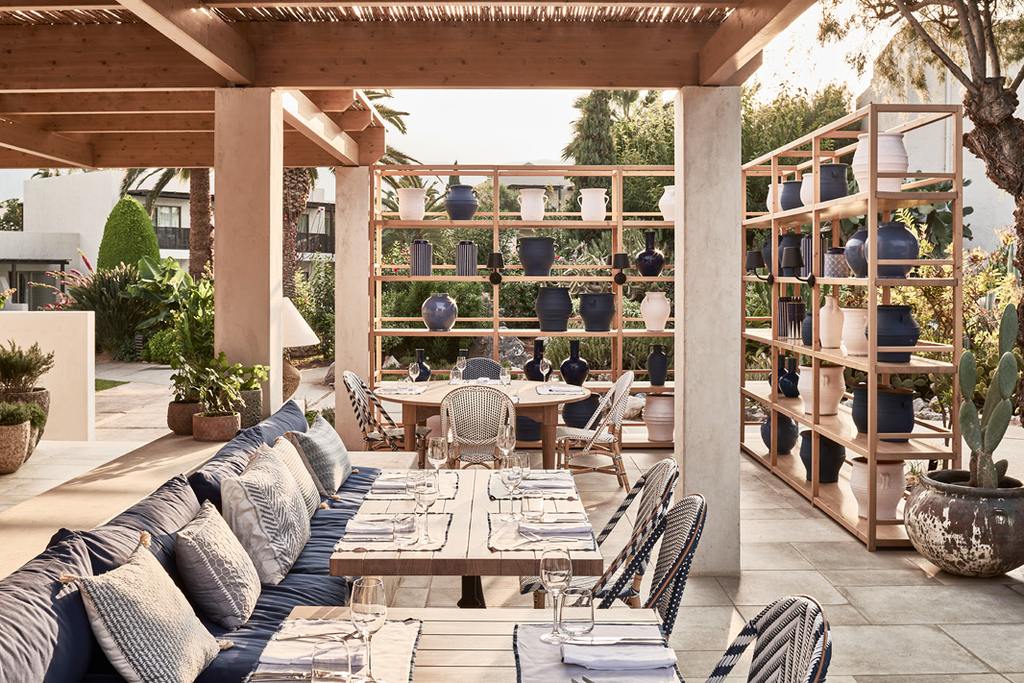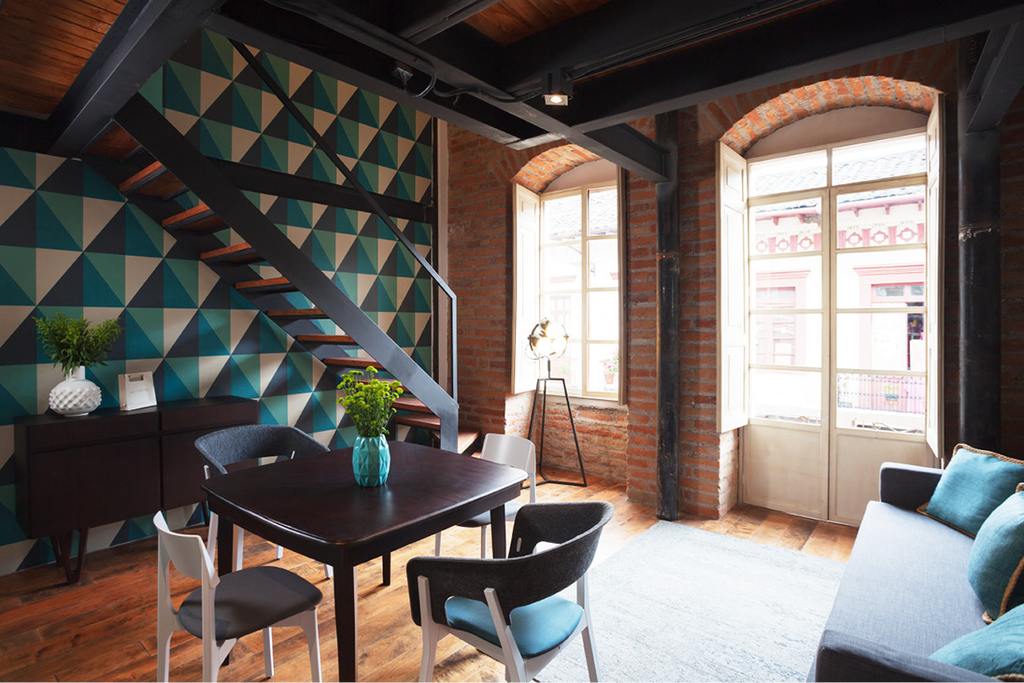Cultures around the world are often defined by food while their cooking methods and tastes go beyond the kitchen. Accordingly, planning where to eat is an integral part of purposeful travel.
So integral, in fact, that certain hotel restaurants have become the cornerstones of the same hotels that host them! These eight properties have gone the extra mile in developing their food and beverage concepts in order to reflect their local cultures, with their in-house restaurants for guests who will not only dine there but also discover local flavors in the most satisfying ways.
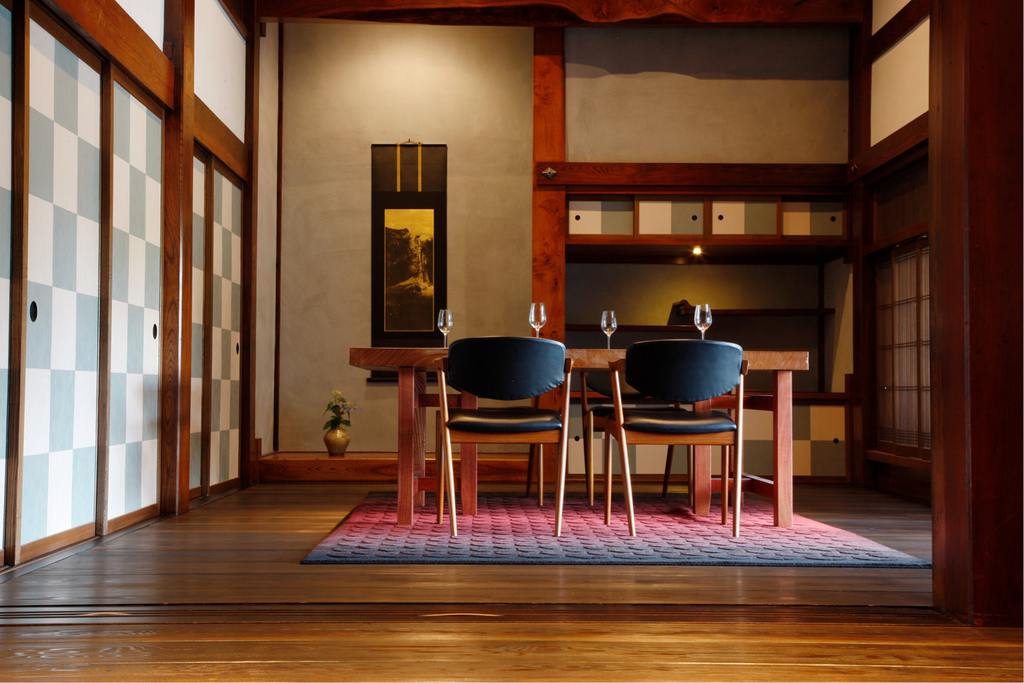
Satoyama Jujo
Following the spring thaw, surprising mountain vegetables and edible wild plants – like wild ferns and butterbur shoots – appear in the five-course menu at the restaurant of Satoyama Jujo Hotel in Minami-Uonuma, Japan. Complementing the entirely organic dishes is a five-drink set featuring regionally produced natural wines and unfiltered, unprocessed sakes.
Similarly, at Les Andéols, in Provence, France, chef Aurélien Egger creates unique dishes, such as smoked potato hay and vegetable truffle butter, using seasonal and local ingredients-most of which are grown in the property’s 32-hectare estate. At both La Platane, where familiar and generous dishes emphasize a Provencal and Mediterranean identity, and La Loggia, where flavors blend in a meticulously refined cuisine, Egger adheres to a seed-to-fork philosophy.
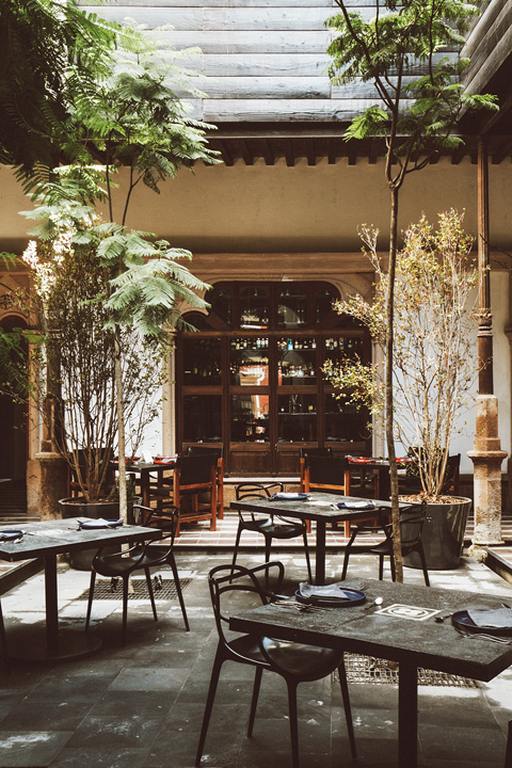
The sights, sounds, and smells of the Alps foothills are literally incarnated on the plates of Das Achental Hotel in Chiemgau, Germany. Here, Chef Edip Sigl- whose endeavors have been awarded with two Michelin stars – uses fresh, organic regional ingredients to define the fine-dining menu at ES:SENZ restaurant as well as at the other two onsite restaurants under his responsibility , Weißer Hirsch and Hubertshütte.
The Cretan Malia Park brings out the essence of this Greek region where food and drinks valuably represent Crete’s UNESCO-protected food heritage. The property’s restaurant chefs use ingredients handpicked from the onsite organic kitchen garden and collaborate with a network of local farmers with sustainable cultivations to create an authentic Cretan cuisine and Mediterranean specialties, paired with the renowned Cretan wines. This summer, from June to September 2022, the Cretan Malia Park chef Athinagoras Kostakos will host pop-up garden dinners in collaboration with a variety of other chefs from the island.
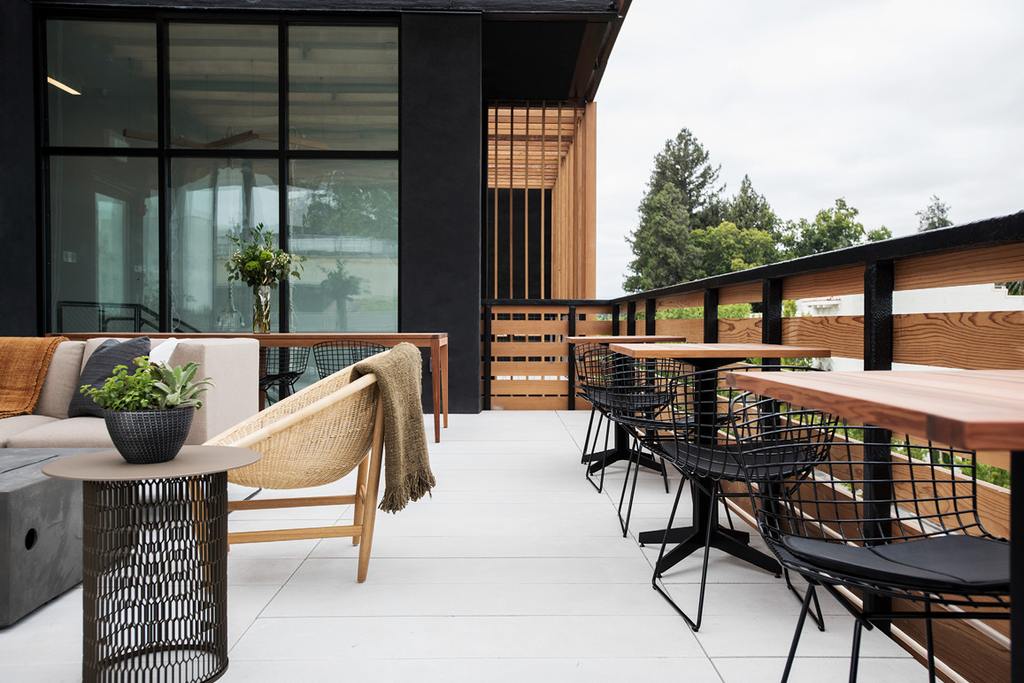
Housed in a structure dating back to 1338 in Monforte, Portugal, Torre de Palma Wine Hotel honors the ancient Roman passion for wine and olive oil. At the Palma Restaurant, the Michelin awarded chef Migel Laffan, takes the Alentejo cuisine to another level, with dishes of locally produced sausages and cheeses as well as carefully selected grazing animals. The hallmark of the hotel is, of course, its namesake boutique winery: seven varieties grow across seven hectares of a light clay soil, and guests can taste the wines made on the estate surrounded by small, marbled winepresses.
An enviable wine selection is also a top draw at Harmon Guest House in Healdsburg, California. The carefully curated wine list, offered on the rooftop terrace overlooking Fitch Mountain, the Sonoma hills, and downtown Healdsburg, features both up-and-coming winemakers and some of the region’s legends. More than just tastings, guests are often invited to meet local winemakers and get to know the winemaking process, beginning with regenerative farming in the vineyards and ending with the bottle that appears on the dinner table.
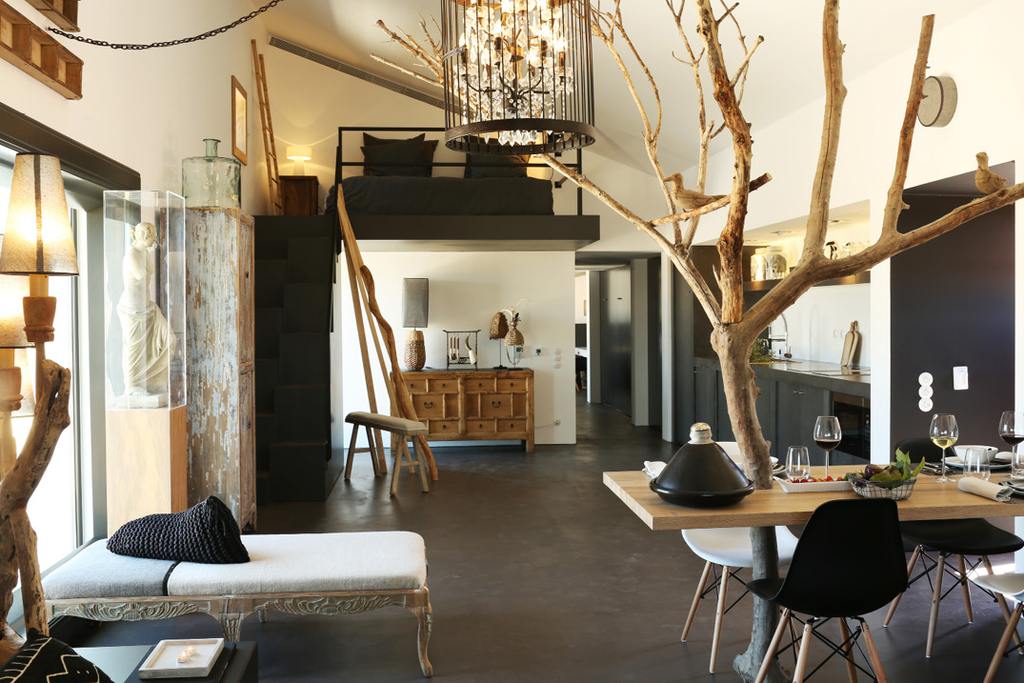
The kitchen staff at Carlota in Quito, Ecuador, have been trained to faithfully replicate Do~na Carlota Echeverria de Moreno’s family recipes, which she cooked herself while residing in the house that is now the hotel. Bistro 626 offers traditional dishes like fanesca, a stew of Andean grains and beans, and guaguas de pan with colada morada—sweet rolls dusted with confectioners’ sugar and filled with jam. A small kitchen garden is cultivated with fresh herbs onsite and a 1,000-square-feet plot of land four miles away supplies the restaurant with 45% of its produce, including organic chillies, green onions and tomatoes.
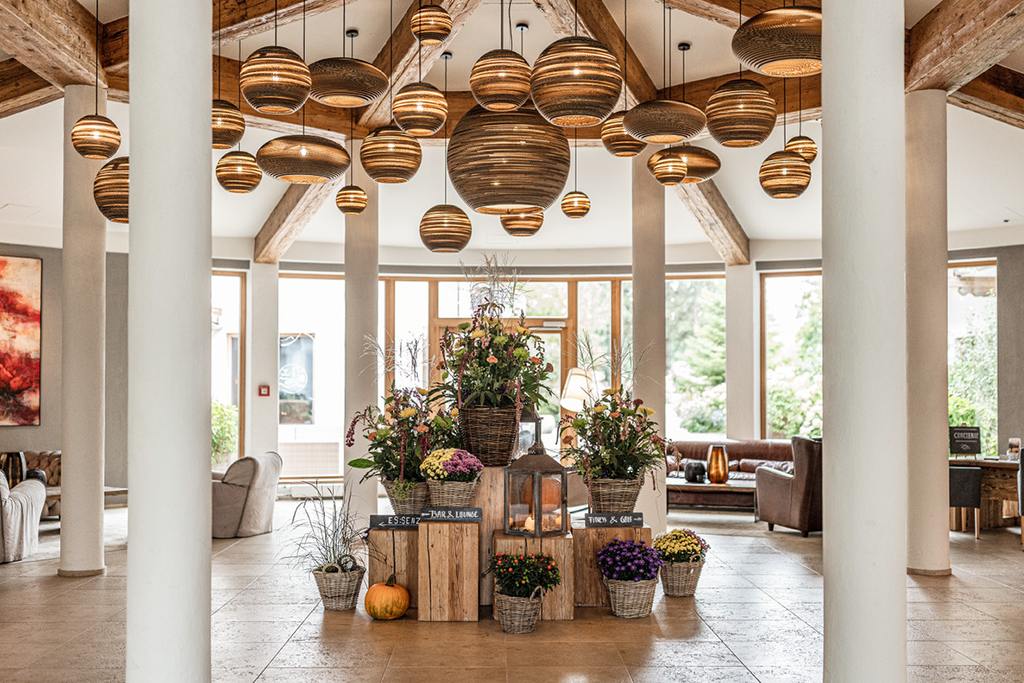
Meanwhile, at Elena de Cobre Hotel in Leόn, Mexico, wood is the protagonist: chef Juan Emilio Villas~nor, a Fire Master of the Mexican Grill Society, is passionate about the natural material’s effect on taste, smell, and colors. At the property’s restaurant, La Cocinoteca, he focuses on smoked Mexican fusion cuisine, created with fresh, seasonal ingredients from the local market and served on a long wooden chef’s table in a kitchen designed especially for him.
Design Hotels honoring the farm-to-table philosophy with authentic local flavors. Culinary journeys for food & drink connoisseurs, from faraway Japan and Ecuador to Portugal and beautiful Crete in the kitchensof 8 Design Hotel restaurants that honor the farm-to-table philosophy with authentic local lavors.
